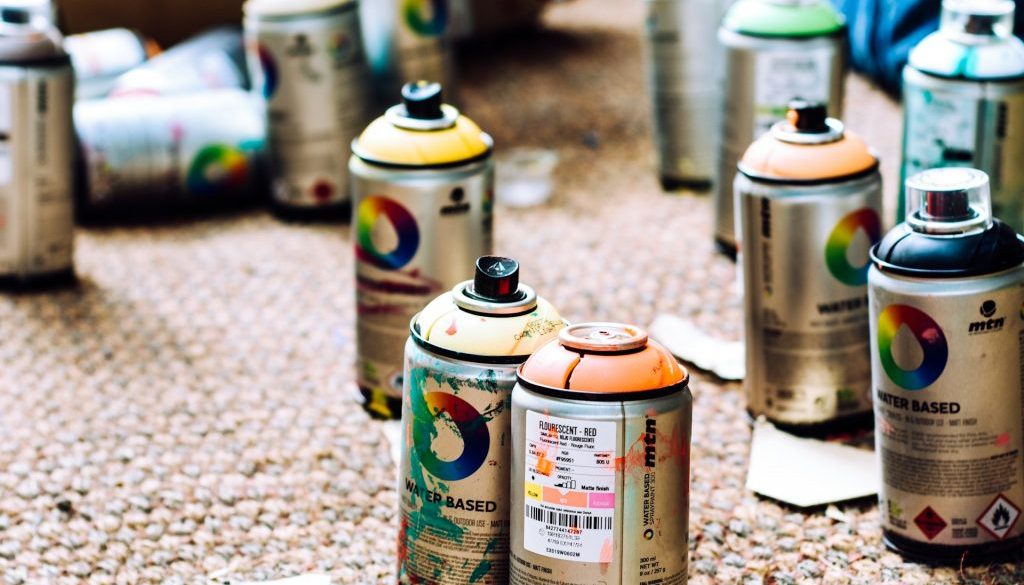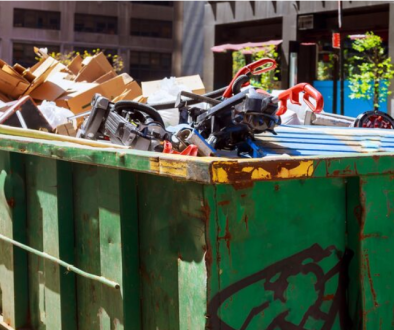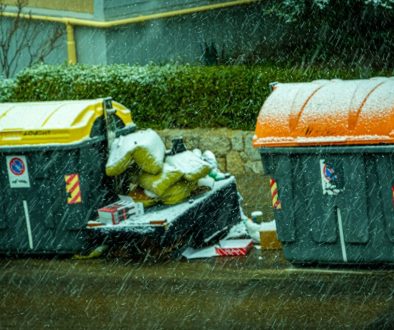Old paint tins in the shed, cleaning sprays gathering dust in kitchen cupboards, half-used garden chemicals sitting in the garage—sound familiar? Over time, many households build up a surprising amount of leftovers from common jobs and projects. While it might feel easy to ignore them or tuck them away, these materials can become unsafe if left sitting for too long. They can leak, smell or even pose a danger if they react with other substances.
It might be tempting to pour them down the drain or toss them with the regular rubbish, but that creates much bigger problems. Chemicals and paint don’t just disappear. They can damage water pipes, harm wildlife and endanger the health of waste workers and anyone nearby. Learning how to handle them properly helps keep your home cleaner and your area—like Whitchurch—safer for everyone. And when it’s all just too much to handle alone, there are simple ways to get help without the stress.
Identifying Common Household Chemicals and Paints
Before doing anything, it’s helpful to know what you’re dealing with. Not every leftover container in the house is dangerous, but quite a few of them can be.
Here are some of the most common types of paint and chemicals people find around their homes:
1. Oil-based and latex paints: Often tucked away after decorating jobs, these may include harmful solvents.
2. Paint thinners, turpentine, and white spirit: Used to clean brushes or thin down paints, but highly flammable.
3. Cleaning solutions: Bleach, drain unblockers, glass cleaner and oven sprays tend to sit ignored after limited use.
4. Garden pesticides and weed killers: Can be dangerous if stored near children or pets, especially in leaky containers.
5. Car maintenance products: Brake fluid, antifreeze, engine oil or screen wash can go off or cause leaks when forgotten.
6. Nail polish remover and hair dye: These domestic items contain strong chemicals and should not be disposed of carelessly.
Hazard symbols may be missing or unreadable, but the risk is still there. Paints left for years can release fumes or harden to the point where they’re unstable. Solvents are known for evaporating and irritating the skin or lungs. Pesticides and cleaners can be extremely toxic if flushed away.
If a container is unlabelled or has a faded label, don’t make assumptions. This is when professional advice becomes genuinely worthwhile. Combining unknown substances—accidentally or otherwise—can cause harmful reactions. Caution is always the better route.
Environmental and Health Impacts of Improper Disposal
Tipping out a bit of remaining paint or chucking chemical bottles into the bin might seem harmless, but the damage adds up quickly. Many substances used in these products stick around in the environment long after they’re thrown away.
Here are just a few examples of what can go wrong:
1. Water contamination: Leftover paints and chemicals flushed down the sink can end up in rivers and lakes, threatening fish and ecosystems if filtration systems aren’t equipped to break them down.
2. Soil issues: Chemicals that leak out of landfills after household disposal can render soil infertile and unsuitable for planting.
3. Risk to waste staff: Bin lorry crews and recycling workers often face risks from containers that leak or explode unexpectedly. Even low amounts of mixed chemicals in a single bag can create real hazards.
At home, the dangers are just as serious. Children and pets might explore storerooms or sheds and chew or knock over a container. Inhalation of fumes from deteriorating products poses another health risk, especially if stored in small, sealed areas.
We recently spoke with a Whitchurch family who discovered a strong chemical smell in their shed. After digging around, they found old bottles of weed killer and a leaky tin of solvent stored side by side. The leakage stained the floor and made the shed unusable for months. It could have been worse if they hadn’t acted in time.
This kind of situation is avoidable. A little planning and better storage can spare families a lot of hassle.
Safe Storage Solutions
If it’s not the right time to dispose of household chemicals or paint, good storage is key.
Follow these guidelines to stay safe:
1. Keep products in their original containers. They’re designed for what they hold and include safety instructions.
2. Label items clearly. If the original label fades or peels off, take time to note the name and date opened.
3. Store everything in a cool, dry, well-ventilated place. Heat can cause pressure to build up. Dampness encourages rusting.
4. Keep them out of reach of children and animals. High-up shelves or locked cupboards reduce the risk of accidents.
5. Don’t decant into other bottles or mix products together. This raises the chance of leaks and dangerous chemical reactions.
If you detect a chemical smell or see corrosion on a container, deal with it soon. Delays only increase the likelihood of something going wrong.
Proper storage not only protects you but makes eventual disposal quicker and simpler.
Proper Disposal Methods
Once you’re ready to get rid of unwanted chemicals or paint, it’s good to know the best way to do it. Many households in Whitchurch don’t realise that their council or authorised providers already have safe systems in place.
For smaller quantities, such as one-off leftovers or materials from basic clean-ups, check if local authorities offer household hazardous waste drop-offs. These services often announce specific days for collection and accept a defined range of chemicals backed by trained crews.
For bulk disposal—after a loft clear-out, DIY project or garage overhaul—you may want something more direct. Hiring a skip in Whitchurch with a trusted disposal company takes the guesswork out of where and how. You just explain what’s going in the skip, and their professional team takes care of sorting and transport.
Be honest and detailed when booking your skip. Let them know whether you’re dealing with paint tins, garden fertilisers or something flammable. Mixing them with bricks, wood or general rubbish may create problems later. Keeping categories separate speeds up the process and improves disposal accuracy.
If you’re unsure about a particular item, ask the provider. Clear answers now prevent bigger hassles later on. Specialist waste services know what regulations apply and can guide you through it.
Benefits of Using Professional Services
Handling hazardous waste yourself may seem like a money-saving move, but the risks and issues quickly add up. Sorting through leaky bottles and out-of-date supplies takes time, and unless you’re trained, it’s easy to misstep.
There are several advantages to bringing in professionals:
1. Convenience. Rather than loading the car with old tins or chasing down opening hours, professional crews work around your schedule and collect directly from your location.
2. Risk awareness. Teams trained in handling hazardous waste can spot dangers you might not even notice, like an unstable chemical container or expired pesticide.
3. Compliance. Most hazardous waste falls under strict transport and disposal laws. Hiring a professional company ensures you’re not breaking any rules unintentionally.
4. Peace of mind. Knowing the job’s done properly lets you relax without worrying about future problems or unexpected fallout.
If, for instance, you have leftover lead paint in the garage and didn’t know it was banned decades ago, a seasoned team will deal with it appropriately.
Enviro Skip Hire supports safe waste disposal for residents and businesses alike. We know the requirements, we have the right equipment, and we remove the uncertainty.
Recycle and Reuse: Creating Less Waste
Not every chemical or paint needs to be thrown away. If an item is still usable and well within its shelf life, it may serve a meaningful purpose.
Consider these ideas:
1. Leftover paint can work for touching up walls, furniture or even outdoor fences and sheds.
2. Garden products like fertilisers and plant feed can be used during seasonal work rather than waiting past their expiry.
3. Community reuse. If you have unopened containers of common products, ask around. Schools, neighbours or community centres sometimes welcome donations—especially for maintenance tasks.
Make sure containers are in good condition, with no leaks or discolouration. Anything that has separated, smells strange or looks odd should be treated as waste.
Empty paint tins and some cleaners are accepted by specialist recycling centres. It’s worth asking if yours does. Letting experts remove ingredients from containers is much safer when compared to handling it at home.
Reducing waste helps the environment and cuts down on repeat purchases.
Make Your Clear-out Count
Hazardous household products have a way of creeping into our lives over time. What starts as a leftover tin or half-used spray can quickly become a shelf full of forgotten goods.
By taking action early—storing safely, planning responsibly and calling in help when needed—you protect your household and surroundings at the same time. Simple steps keep chemical risks under control.
If you live in Whitchurch and are facing the challenge of a chemical or paint cleanup, sorting it out doesn’t need to be overwhelming. With professional services just a call away, there’s no reason to handle hazardous materials alone. Make smart choices and enjoy the space you reclaim, knowing it’s been done safely and responsibly.
For those in Whitchurch looking to clear out hazardous waste, consider opting for professional support. It’s easy to hire a skip in Whitchurch for larger jobs, ensuring that all leftover paints, chemicals, and other unwanted materials are handled efficiently and responsibly. Trust Enviro Skip Hire to help you manage waste with confidence and respect for the environment. Let us simplify the disposal process for you.




